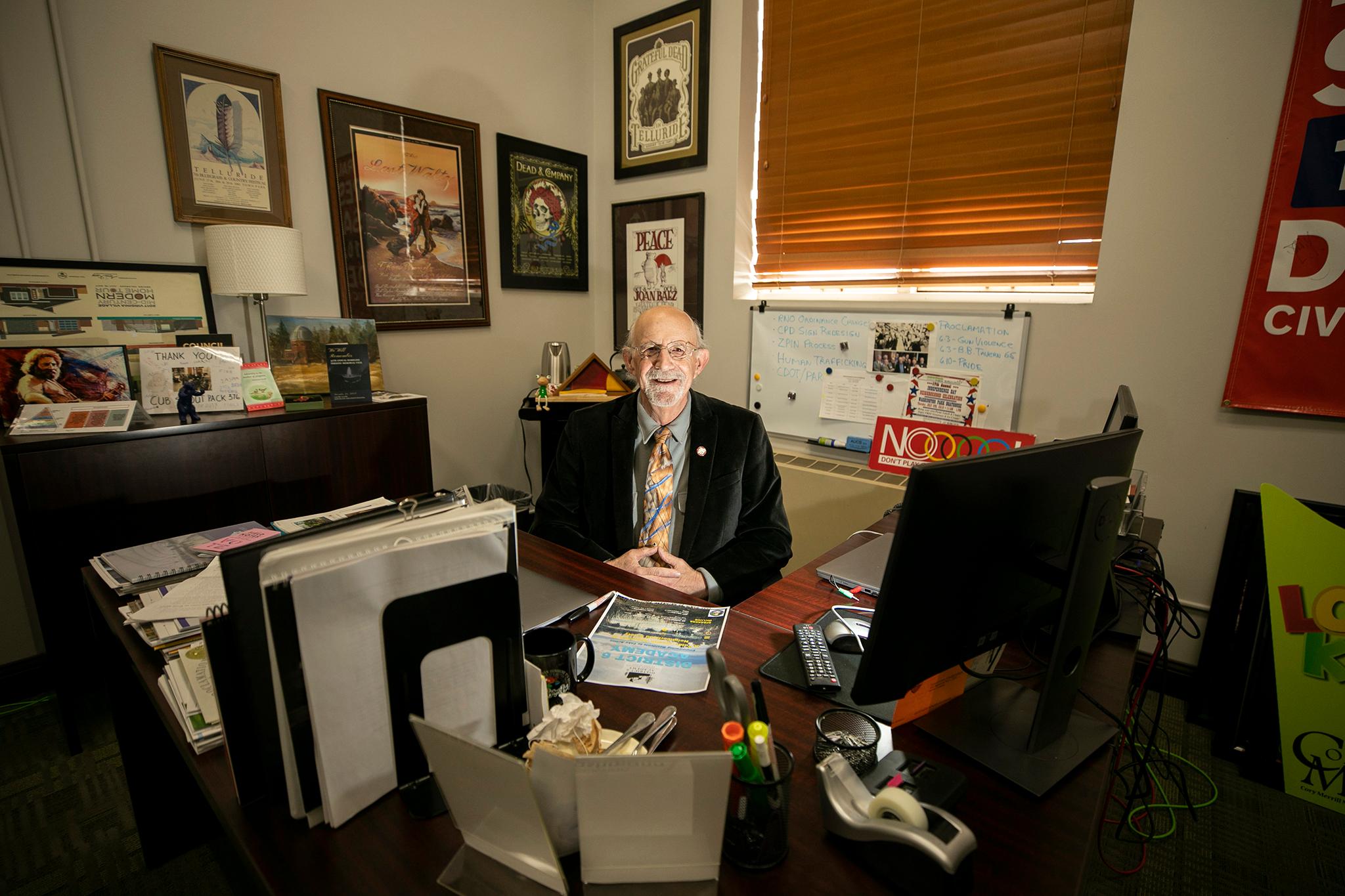Ahead of the election, District 6 councilmember Paul Kashmann said he's feeling a mix of excitement, fulfillment and a desire to keep pushing toward more success.
Kashmann is running for the southeast Denver seat unopposed for the second time and for the third-time all together, meaning he's reached the term limit allowed for councilmembers.
"I'm blessed to be able to concentrate on work I have on my plate already," Kashmann said. "I hope folks think I'm doing a decent job. We've certainly been working hard the past seven years and I think we've gotten a bunch accomplished. With all the challenges that the city is facing right now, it's a tough time to puff out your chest and say look how great we've done, but with that said, we've been working hard and I do think we've gotten some stuff accomplished."
Kashmann, originally from New Jersey, has lived in southeast Denver and specifically Virginia Village for about 40 years. Prior to being elected in 2015, Kashmann was the publisher of the Washington Park Profile, a community paper he sold to Colorado Community Media.
Through his work at the paper, Kashmann said he strived to listen to the public and keep them informed, a trait he feels he brought to City Council.
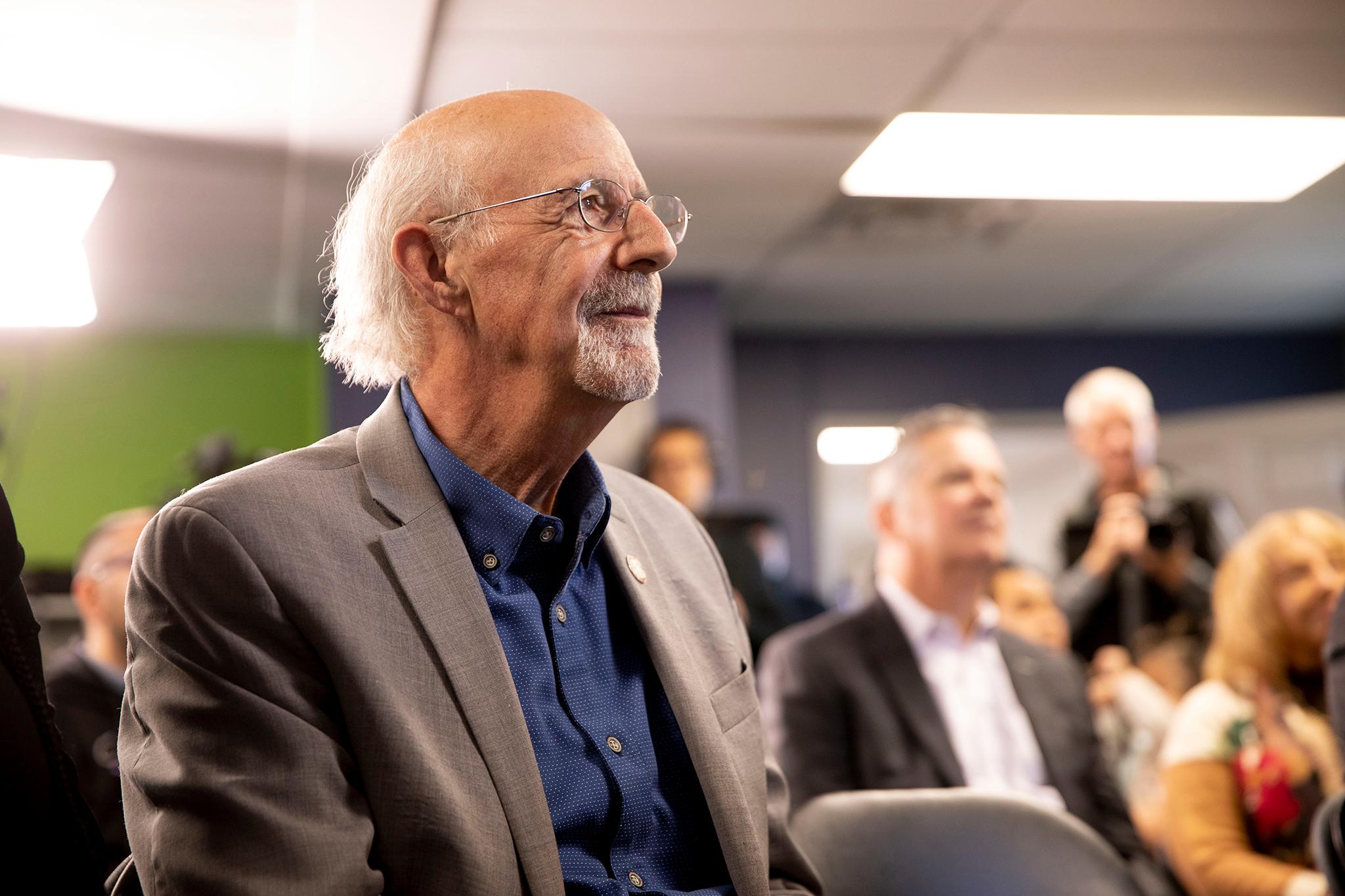
Kashmann said one of his major accomplishments was establishing a public comment period during council meetings. Before then, the comment period would occur once a month and would be untelevised.
His goal with that was to encourage engagement with the public, he said, and that's something he tries to practice throughout the district.
Last year, Kashmann established the District 6 Academy: Empowering Residents to Take Action in his district. It invites registered neighborhood organization leaders to meet once a month and learn how to participate in government affairs and how the city operates. This year, he's opening up the Academy to anyone in the district.
Kashmann also created the Community Benefit Fund in his district which provides RNOs with grant funding. RNOs could apply for up to $2,000 in funding for events or projects that "build community in the neighborhoods." Seven RNOs participated and used the funding for newsletters, building new websites and hosting community events.
This year, Kashmann has set aside a budget to complete a study on whether the city should create a government office that focuses on community engagement, similar to cities like Seattle and Los Angeles.
"Rather than just informing, we're really looking to empower people to participate in their own governance," Kashmann said. "We've got 13 good people on city council. We've got a bunch of great city workers, but we've got 750,000 people in the City and County of Denver and we're missing out on good ideas by not directly involving them early in the policy making process. I think it's in our best interest and I think it's the right thing to do our best to bring people into the fold more than we've done in the past."
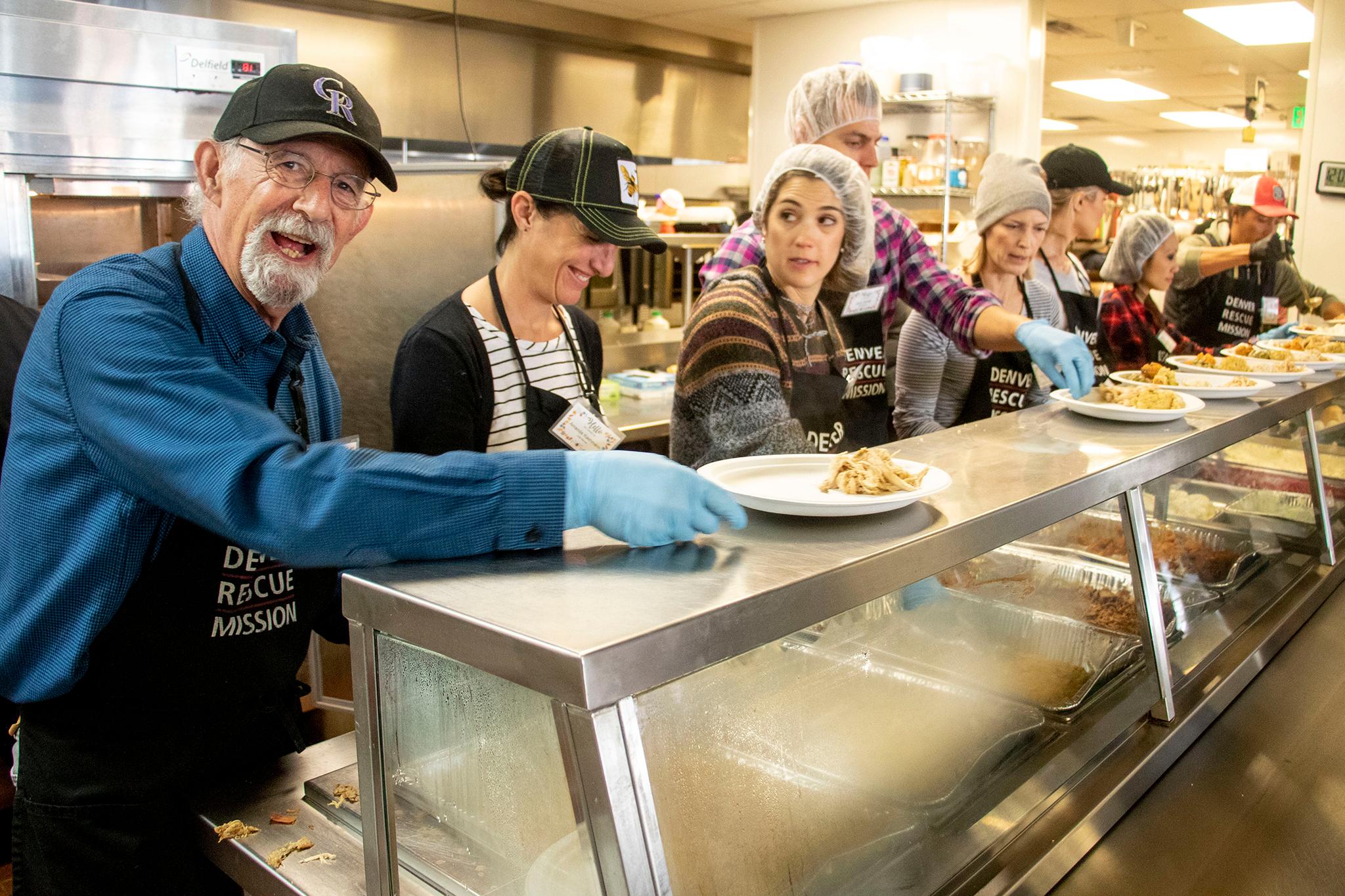
Pedestrian safety is one of Kashmann's main focuses in his district and across the city.
The first focus was sidewalks. Kashmann once served as chair of the Council's Sidewalks Working Group and was on the Mayor's Pedestrian Advisory Council. He helped create a program that would help Denverites fix their sidewalks by providing homeowners with funding.
The program was also meant to remind owners that they were responsible for fixing their sidewalks. It was found to be inefficient by Denver Auditor Tim O'Brien and Kashmann agreed.
Kashmann also applauded the voter-approved "Denver Deserves Sidewalks" ballot initiative, which shifts responsibility for sidewalk maintenance and repair from property owners to the city.
"I'm pleased that we've been able to draw attention to a part of our city's infrastructure that had been ignored for way too long," Kashmann said.
Kashmann's second focus was traffic movements. He spearheaded the "20 is plenty" ordinance, which reduced the speed limit on neighborhood streets from 25 to 20 MPH. The change will go into effect this year.
That proposal stemmed from Vision Zero, the city's initiative to completely eradicate traffic deaths and serious injuries by 2030, Kashmann said. The Department of Transportation and Infrastructure previously said about 7% of serious injuries happen on neighborhood streets that don't have painted lanes, which is what the ordinance is focused on.
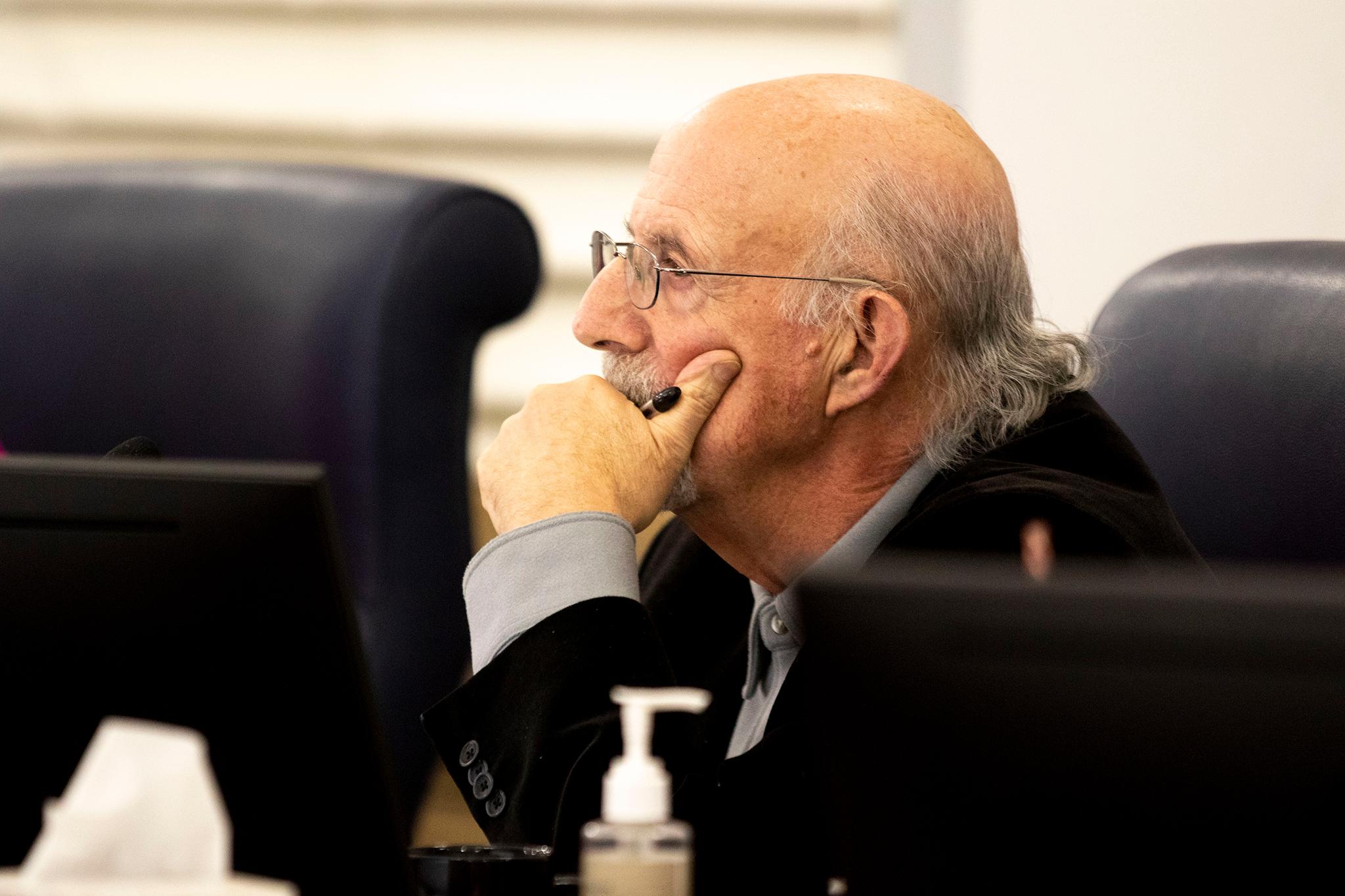
Kashmann has worked on several other measures, from requiring massage parlors to be licensed to combat human trafficking to allowing children to run lemonade stands without a permit.
He's worked with Councilmember Robin Kniech on a program to provide free legal aid for those being threatened with evictions. He also worked with Kniech and former Councilmember and now Clerk and Recorder Paul Lopez to strengthen the Office of the Independent Monitor by adding it to the city charter.
Kashmann said he also has a few things up his sleeve for his third term.
Working with Councilmember Stacie Gilmore, who is also running unopposed, Kashmann wants to improve broadband connectivity across the city by providing municipal broadband to fill in the gaps left by commercial providers.
He's also working with the Denver Police Department on implementing the use of a bike registration system called 529 Garage, a national database created in 2012.
Bike thefts have risen in the city by 49% since 2017, and in 2020, Denver saw record-breaking with 1,946 bikes stolen. Since then the numbers have slightly decreased but they're still high. DPD previously said that registering a bike with the police is the number one way to ensure that a bike is returned if stolen and recovered.
"[529 Garage] were able to not just increase the number of bikes that were returned to owners but also actually reduced bicycle theft by like 40% over three years," Kashmann said.
Kashmann also intends to focus on housing this term and there are plenty of developments occurring in his area.
The University Hills-Schlessman YMCA redevelopment is currently in the design phase. The goal is to create a mixed-use campus with a new YMCA facility at the center of it. The campus would also include housing, retail, medical offices and open space.
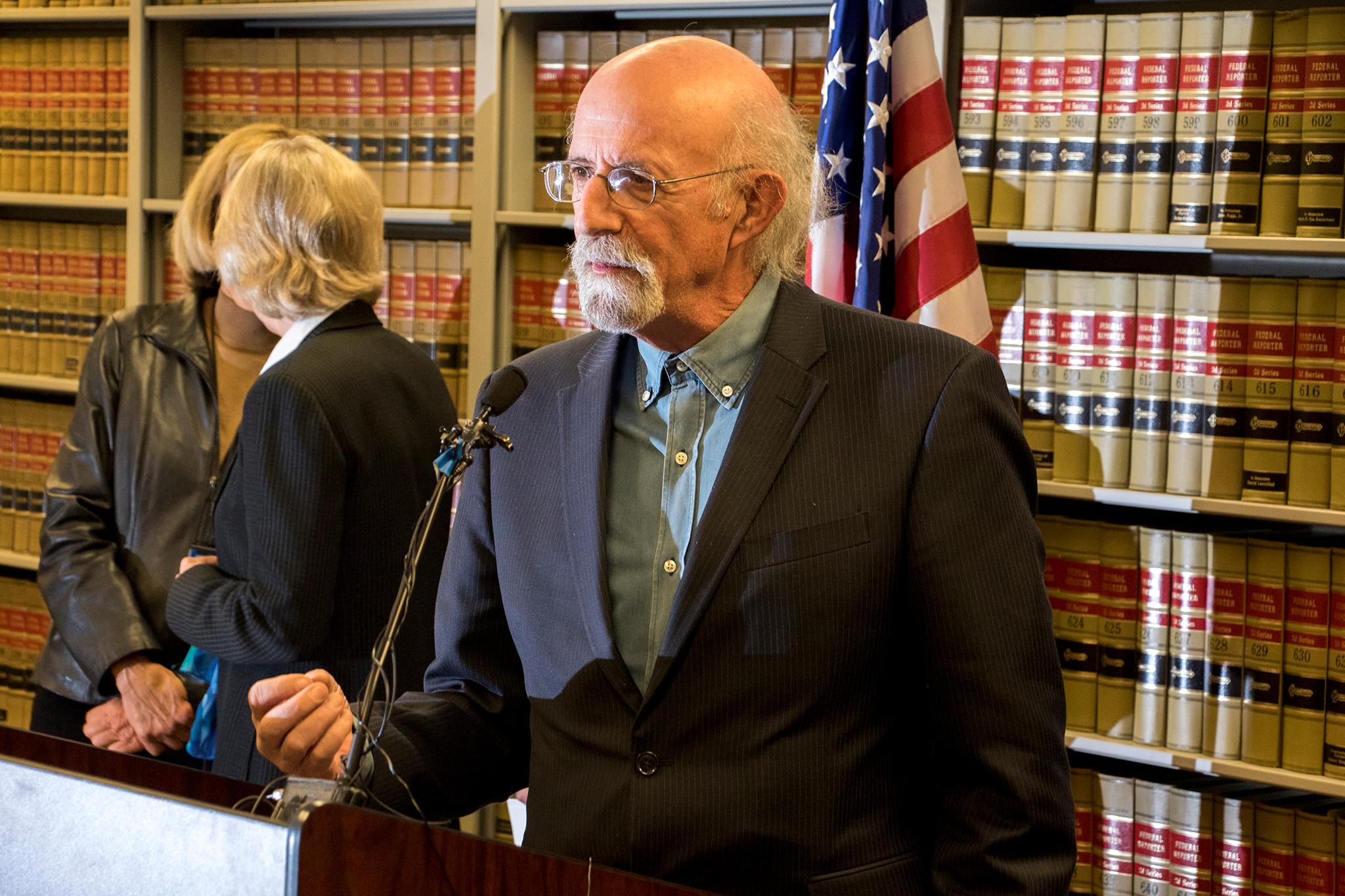
There are also the two redevelopments of the old Colorado Department of Transportation campuses. The first on S. Holly Street near Evans Avenue will host 62 units for seniors 55 years and older, as well as 198 market-rate townhomes. The bigger campus on E. Arkansas Avenue and S. Birch Street will have 151 units of affordable housing for those making 60% of the area median income. The 12-acre campus will also include a 1.6 acre park and a 100,000 square foot King Soopers.
Kashmann said he's excited to serve his third term and provide some consistency on council while also working with new members and a new mayor. If District 2 Councilmember Kevin Flynn gets reelected, he, Kashmann and Gilmore will be the three remaining members from the City Council class of '15.
"This is a great job. It's a profound responsibility and I'll do my best to close out my council career with hopefully some successes," Kashmann said. "I look forward to working with the next council as I have with the existing council in trying to create a housing inventory that not only gets our unhoused residents off the street but makes housing affordable to our workforce, our teachers and our firefighters. The person that bags your groceries at Safeway. We need to be a city where people who work here can also afford to live here."
Before his final term even begins, we had to ask: will Kashmann run for mayor after?
"That is a job I have no interest in. But in all seriousness, the job of mayor of a big city is a couple levels above city council in the skills you need to possess and the responsibility that weighs on you. Mayor has never been in my sights."
Clarification: This article has been updated to make clear the name of Kashmann's empowerment academy.

